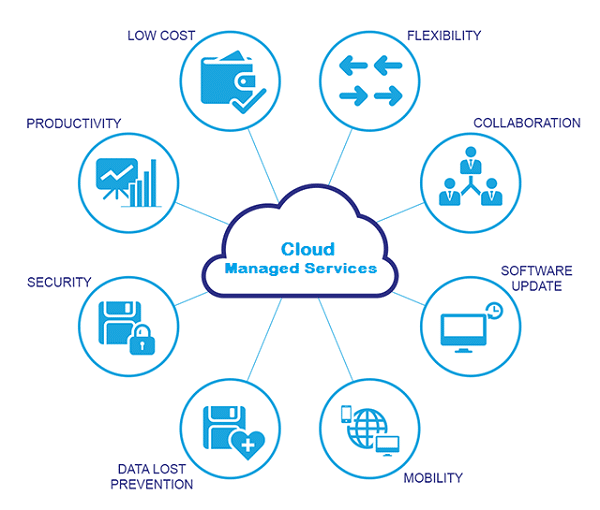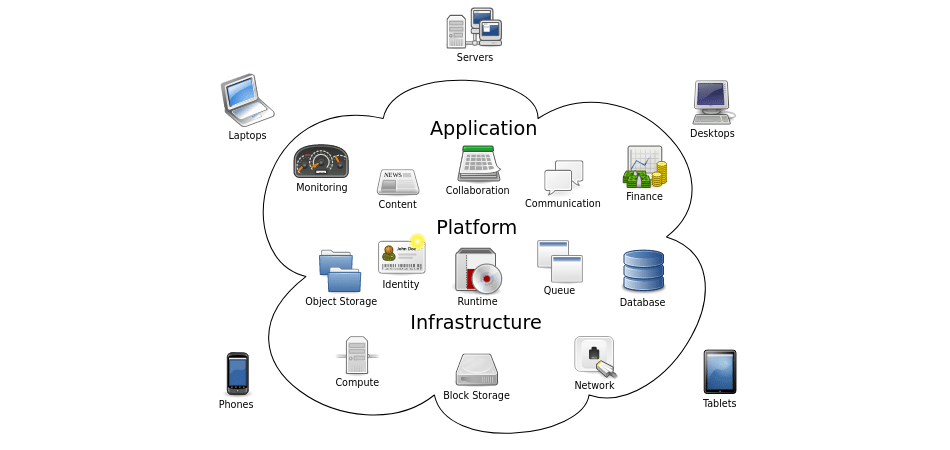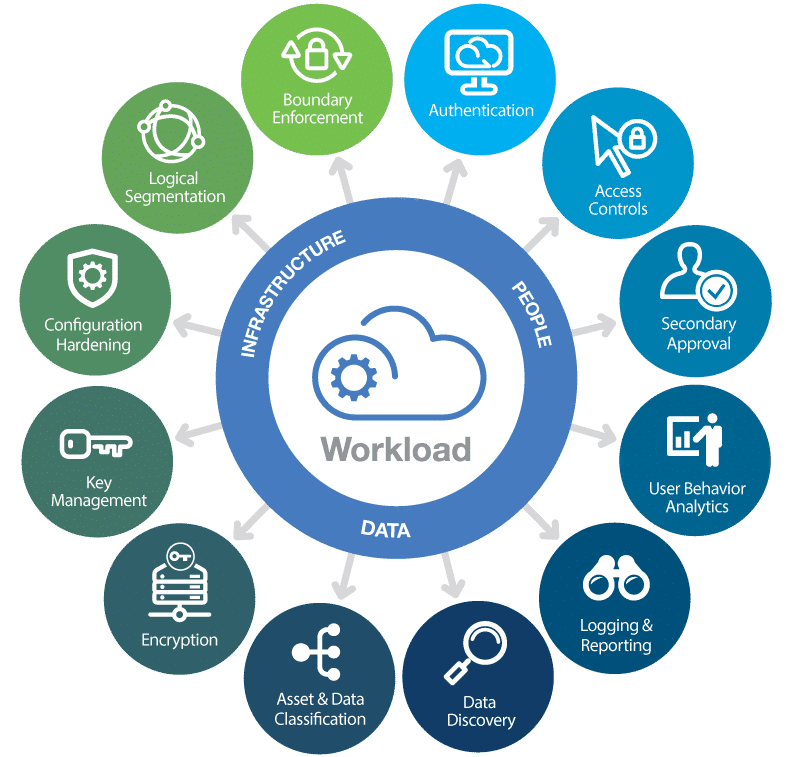The COVID-19 pandemic brought a plethora of sudden changes that shook industries across the globe. Recently, as the world began to heal from it, businesses faced the ongoing challenges of adapting to the disruptions it caused, including navigating the evolving landscape of ERP trends 2023.
To overcome these challenges, many companies are now exploring opportunities to leverage technology with minimal investment, aiming to balance cost reduction and increasing business resilience.
In recent years, companies across various industries have invested in ERP platforms to enhance their management operations, streamline processes, and save time and costs.
This blog will cover the latest ERP trends business should follow to scale in 2023.
What is an Enterprise Resource Planning system?

Enterprise Resource Planning (ERP) systems are designed to streamline and automate business processes, allowing companies to manage their operations more efficiently. As technology continues to evolve, so do ERP systems, with new trends and innovations constantly emerging.
Let’s explore 10 ERP trends to follow in 2023:
ERP Trends: Cloud-based ERP Systems

Cloud-based ERP systems have been gaining popularity in recent years, and this trend is expected to continue in 2023. These systems offer numerous benefits, including scalability, flexibility, and cost-effectiveness. With cloud-based ERP systems, businesses can access their data from anywhere, and software updates can be performed automatically, eliminating the need for manual updates.
-
- Do the cloud platform architecture, services, and standards back your operations and management preference of your business?
-
- Are they offering migration services?
-
- What were their similar deployments and performance in such deployments?
-
- How does it plan to offer better services if there is any loophole?
ERP Trends: Integration with IoT Devices

The Internet of Things (IoT) has been a game-changer for many industries, and ERP systems are no exception. In 2023, we expect more ERP systems to integrate with IoT devices to collect real-time data and automate processes. This integration can help businesses optimize operations, reduce downtime, and improve efficiency.
ERP Trends: Artificial Intelligence and Machine Learning
Artificial Intelligence (AI) and Machine Learning (ML) are already transforming how businesses operate, and this trend is expected to continue in 2023. ERP systems that leverage AI and ML can help automate routine tasks, identify patterns and trends in data, and provide insights that can help businesses make more informed decisions.
ERP Trends: Increased Focus on Cybersecurity
Cybersecurity has become a top concern as more businesses move their operations online. ERP systems contain sensitive data, and any breach can have serious consequences. In 2023, we can expect ERP vendors to emphasize cybersecurity more, with more advanced security features and protocols being implemented.
ERP Trends: Mobile Access
Mobile access to ERP systems has been a growing trend in recent years, and this is expected to continue in 2023. With more people working remotely or on the go, businesses need to ensure that their employees can access their ERP systems from their mobile devices. This trend will likely result in more mobile-friendly ERP interfaces and mobile-specific features being added to ERP systems.
ERP Trends: Increased Customization
Every business is unique, and ERP systems need to be customizable to meet each company’s specific needs. In 2023, we can expect ERP providers to offer more customization options, allowing businesses to tailor their ERP systems to their particular requirements.
ERP Trends: Focus on User Experience
ERP systems have traditionally been known for their complexity and difficulty of use. However, in 2023, we expect ERP providers to emphasize user experience with more intuitive interfaces, better navigation, and improved usability.
ERP Trends: Integration with Social Media Platforms
Social media has become a critical marketing tool for businesses, and ERP systems can help streamline social media management. In 2023, we can expect to see more ERP systems integrating with social media platforms, allowing businesses to manage their social media presence directly from their ERP system.
ERP Trends: Greater Emphasis on Sustainability
Sustainability has become a top concern for many businesses, and ERP systems can help companies track their environmental impact. Therefore, a greater emphasis on sustainability, with more sustainability-focused features being added to ERP systems, is a highly anticipated ERP trend in 2023.
ERP Trends: Greater Flexibility
Finally, in 2023, we can expect ERP systems to become more flexible, with modular designs and the ability to integrate with third-party applications. This flexibility will allow businesses to tailor their ERP systems to their needs, adding new functionality as required. With the rapid technological advancement, we might see some recent emerging ERP development trends.
ERP Trends: Benefits of investing in ERP systems for businesses
Enterprise Resource Planning (ERP) systems are powerful tools that allow companies to streamline their processes and optimize their operations. These systems integrate various business functions such as finance, human resources, procurement, manufacturing, and supply chain management into a single platform.
Let us now explore the benefits of investing in ERP systems for businesses:
Improved Efficiency and Productivity
ERP systems eliminate manual processes and automate routine tasks, freeing time for employees to focus on more critical tasks. This results in improved efficiency and productivity, allowing businesses to achieve more with less effort. ERP systems also provide the following:
-
- Real-time data.
-
- Enabling employees to make informed decisions quickly.
-
- Leading to better business outcomes.
Cost Savings
ERP systems can help businesses save money by reducing operational costs. By automating routine tasks and eliminating manual processes, companies can reduce labor costs and improve accuracy, resulting in cost savings. Additionally, ERP systems provide real-time data, allowing businesses to make informed decisions quickly and avoid costly mistakes.
Improved Communication and Collaboration
ERP systems provide a single platform for all business data, enabling employees to access information from one central location. This improves communication and collaboration, allowing employees to work together more effectively. ERP systems also provide the following:
-
- Real-time data.
-
- Enabling employees to make informed decisions quickly.
-
- Leading to better business outcomes.
Enhanced Customer Service
ERP systems provide a comprehensive view of customer data, enabling businesses to provide better customer service. With real-time data, companies can quickly respond to customer inquiries and resolve issues efficiently, enhancing customer satisfaction. Additionally, ERP systems provide insights into customer behavior, allowing businesses to personalize their services and products to meet customer needs.
Scalability
ERP systems are designed to be scalable, allowing businesses to add new features and functionality as their needs evolve. This scalability means that companies can quickly adapt to changes in the market, ensuring that they remain competitive and agile.
Better Data Security
ERP systems provide robust data security features, ensuring that sensitive business data is protected from unauthorized access. These systems provide access controls, data encryption, and other security features, ensuring businesses can comply with regulatory requirements and protect their data from cyber threats.
Improved Supply Chain Management
ERP systems provide real-time data on inventory levels, enabling businesses to optimize their supply chain management. With this data, companies can quickly respond to changes in demand, reducing lead times and improving customer satisfaction. Additionally, ERP systems provide insights into supplier performance, enabling businesses to identify areas for improvement and optimize their supplier relationships.
Things to Consider Before Choosing an ERP Software
With so many ERP software options available on the market, it can be challenging to choose the right one. Here we’ll explore the things to consider before choosing ERP software.
Business Needs and Goals
Before choosing ERP software, your business needs and goals are the first things to consider. Consider what functions you want the software to perform, what features are essential, and what goals you want to achieve. By understanding your business needs and goals, you can select an ERP software that aligns with your requirements.
Integration Capabilities
ERP software should integrate with other essential tools and systems, such as customer relationship management (CRM), supply chain management, and accounting software. Ensure that the ERP software you choose integrates with other software tools and systems your business uses to ensure seamless data flow.
Scalability
Scalability is another critical factor to consider when selecting ERP software. Your business needs may change, so you want an adaptable software solution. The software should accommodate changes in your business operations and growth in data volume.
User-Friendly Interface
ERP software is designed to simplify and streamline business operations. The software should be easy to use and navigate. The interface should be intuitive, user-friendly, and easy to understand for all employees.
Data Security
ERP software contains sensitive business data such as financial, customer, and inventory data. As such, choosing a software solution with robust data security measures is essential to prevent data breaches, cyber-attacks, and other security threats. Ensure your chosen software has adequate data encryption, access controls, and other security features to protect your business data.
Cost
ERP software costs vary depending on the vendor, features, and functionality. Consider your budget and determine how much you can spend on an ERP software solution. You should also evaluate the expected ROI (return on investment) from the software and determine if the cost is justified.
Customization Options
Your business has unique needs, and the ERP software you choose should accommodate those needs. Ensure that the software solution you select has customization options that allow you to tailor the software to your specific requirements.
10 Predicted ERP Trends to Watch for in the Coming Years
- Cloud-based ERP systems will become more prevalent, with spending on cloud ERP expected to grow by 30% annually through 2023. (Source: Gartner)
- AI and machine learning will continue to be integrated into ERP systems to improve automation and decision-making capabilities. (Source: Forbes)
- Mobile accessibility will become increasingly important, with more businesses demanding mobile-friendly ERP systems to support remote and flexible work arrangements. (Source: CIO Dive)
- Cybersecurity will remain a top priority for ERP vendors and businesses, with more advanced security features being integrated into ERP systems to protect sensitive data. (Source: TechRepublic)
- The rise of Industry 4.0 and smart manufacturing will drive the integration of ERP systems with IoT devices and real-time data analytics for more efficient production and supply chain management. (Source: Manufacturing.net)
- Greater emphasis on sustainability and environmental responsibility will drive the development of ERP systems with integrated environmental, social, and governance (ESG) tracking and reporting capabilities. (Source: Computer Weekly)
- More businesses will adopt ERP systems with integrated blockchain technology for enhanced supply chain transparency and traceability. (Source: Forbes)
- Collaborative ERP systems that support cross-functional teamwork and knowledge-sharing will become increasingly popular, with more emphasis on user experience and ease of use. (Source: Supply Chain Dive)
- ERP vendors will offer more customizable and modular ERP solutions to cater to the unique needs of different industries and business sizes. (Source: TechTarget)
- The demand for ERP systems with advanced analytics and predictive capabilities will continue to grow, allowing businesses to make data-driven decisions and gain a competitive edge. (Source: Manufacturing.net)
Also check: ERP Implementation Best Practices
ERP Trends: Bottom Line
In conclusion, choosing an ERP software solution is a significant decision that can impact your business operations and bottom line. Before selecting an ERP software solution, it’s crucial to consider your business needs and goals and pay close attention to the ERP development services. By evaluating these ERP trends, you can select an ERP software solution that meets your business needs and helps you achieve your goals.
Frequently Asked Questions
Cloud-Based ERP:
The adoption of cloud-based ERP systems is expected to continue growing. Cloud ERP offers benefits such as scalability, flexibility, reduced infrastructure costs, and easier access to data from anywhere. It allows businesses to leverage the advantages of cloud computing, including automatic updates, high availability, and improved collaboration.
Integration and Interoperability:
ERP systems are increasingly being integrated with other business applications and systems. Integration with CRM, e-commerce platforms, supply chain management systems, and other enterprise systems enhances data flow, streamlines processes, and provides a holistic view of business operations.
Mobile ERP:
The demand for mobile access to ERP systems is rising. Mobile ERP apps and responsive web interfaces enable employees to access ERP functionality and data on smartphones and tablets. This trend facilitates real-time decision-making, remote work, and improves productivity for on-the-go users.
Artificial Intelligence (AI) and Machine Learning (ML):
AI and ML technologies are being integrated into ERP systems to enable automation, predictive analytics, intelligent insights, and process optimization. AI-powered chatbots and virtual assistants are being used for user support and self-service, enhancing user experience.
Data Analytics and Business Intelligence:
ERP systems are leveraging advanced data analytics and business intelligence capabilities. Integrated reporting, data visualization, and real-time analytics enable businesses to derive actionable insights from their ERP data, facilitating data-driven decision-making and strategic planning.
Enhanced User Experience:
ERP vendors are focusing on improving the user experience (UX) of their systems. Modern ERP interfaces are becoming more intuitive, user-friendly, and customizable. The adoption of role-based access and personalized dashboards makes ERP systems easier to use and enhances productivity.
Industry-Specific Functionality:
ERP systems are evolving to address industry-specific needs. Vertical solutions tailored for industries such as manufacturing, healthcare, retail, and construction are gaining prominence. These industry-specific ERP offerings come with preconfigured processes and functionalities relevant to specific sectors.
The future of ERP solutions is expected to be shaped by several key trends and advancements. Here are some potential aspects that could define the future of ERP:
Cloud-Based ERP Dominance:
The adoption of cloud-based ERP solutions is likely to continue growing, with more organizations transitioning from on-premises systems to cloud deployments. Cloud ERP offers benefits such as scalability, flexibility, cost-effectiveness, and easy access to data from anywhere, driving its popularity.
Intelligent Automation:
ERP systems will increasingly incorporate intelligent automation technologies, such as artificial intelligence (AI), machine learning (ML), and robotic process automation (RPA). These technologies will automate repetitive tasks, enhance data analysis capabilities, enable predictive insights, and drive process optimization.
Embedded Analytics and Real-Time Insights:
ERP solutions will emphasize advanced analytics capabilities, providing embedded business intelligence and real-time reporting. Users will have access to comprehensive and visually appealing dashboards, enabling them to make data-driven decisions faster and more effectively.
Enhanced User Experience:
ERP vendors will continue to focus on improving the user experience (UX) of their systems. Modern ERP interfaces will become more intuitive, personalized, and mobile-friendly, with enhanced search capabilities and natural language processing. Users will have access to role-based and context-specific functionalities tailored to their needs.
As an AI language model, I don’t have access to real-time data or the ability to browse the internet. Therefore, I cannot provide specific market size figures for the ERP market in 2025. Market sizes can vary depending on various factors, including geographical regions, industry segments, and the specific scope of the ERP market being considered.
To obtain accurate and up-to-date information on the size of the ERP market in 2025, I recommend referring to industry reports, market research publications, and reputable sources that specialize in market analysis and forecasting. These sources can provide the most current and reliable data on the projected size and growth of the ERP market within specific regions or industries.













